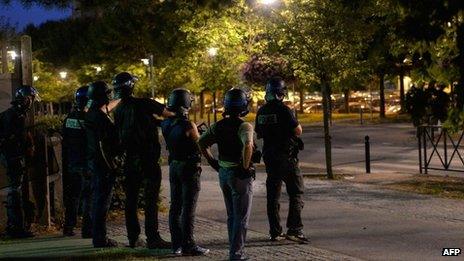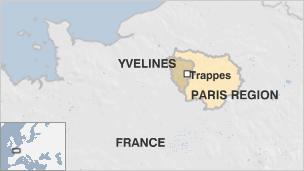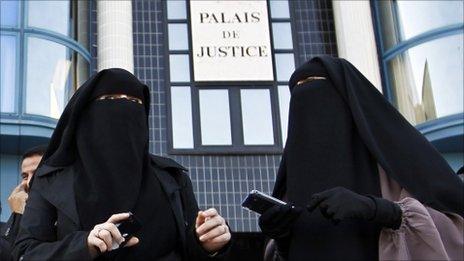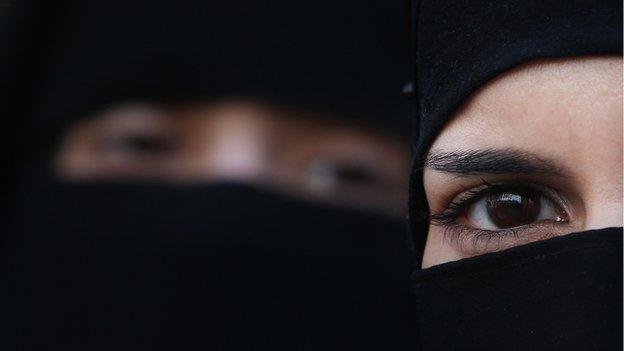France veil row sparks Trappes unrest
- Published

Riot police reinforcements were drafted in to protect Trappes police station
Crowds of youths have thrown stones at French police and set fire to cars in a second night of disturbances in the Paris suburb of Trappes.
The trouble was sparked by the arrest of a man whose wife was told by police on Thursday to remove an Islamic face-covering veil, banned in public.
He has been accused of trying to strangle the officer.
Up to 300 people attacked a police station in Trappes on Friday night where the man was being held.
One leading Muslim group disputed the authorities' version of events, blaming police "provocation".
The suspect, described as a Muslim convert aged 21, was later released on Saturday pending an appearance in court, French media say.
The ban on wearing the full face veil in public was introduced in April 2011 with the threat of a financial penalty for not observing it.
'Beginning to spread'

Reinforcements from the CRS riot police were drafted in and Interior Minister Manuel Valls said they would remain in place until calm was restored. Thirty riot police vehicles were seen outside the Trappes police station.
In the latest violence which erupted in Trappes and several neighbouring areas, bus-shelters and cars were torched and fireworks directed at police, who responded with tear gas and baton charges.
The worst of the trouble took place in the early hours of Sunday. In one reported incident, a car was driven at police but no-one was hurt.
"It's beginning to spread to surrounding areas - Elancourt and Guyancourt," David Callu of the SGP police officers' union told BFM-TV news channel.
Four people were arrested and 20 cars burned, Mr Valls said in a statement.
Tensions in France's high-immigration city suburbs continue to fester, the BBC's Paris correspondent Hugh Schofield reports.
Although there has been no sustained unrest since the 2005 riots, sporadic violence is far from rare, he adds.
In 2005, a state of emergency was imposed when a wave of rioting spread across France, sparked by the deaths of two teenagers in a Paris suburb.
- Published22 September 2011

- Published31 May 2018
